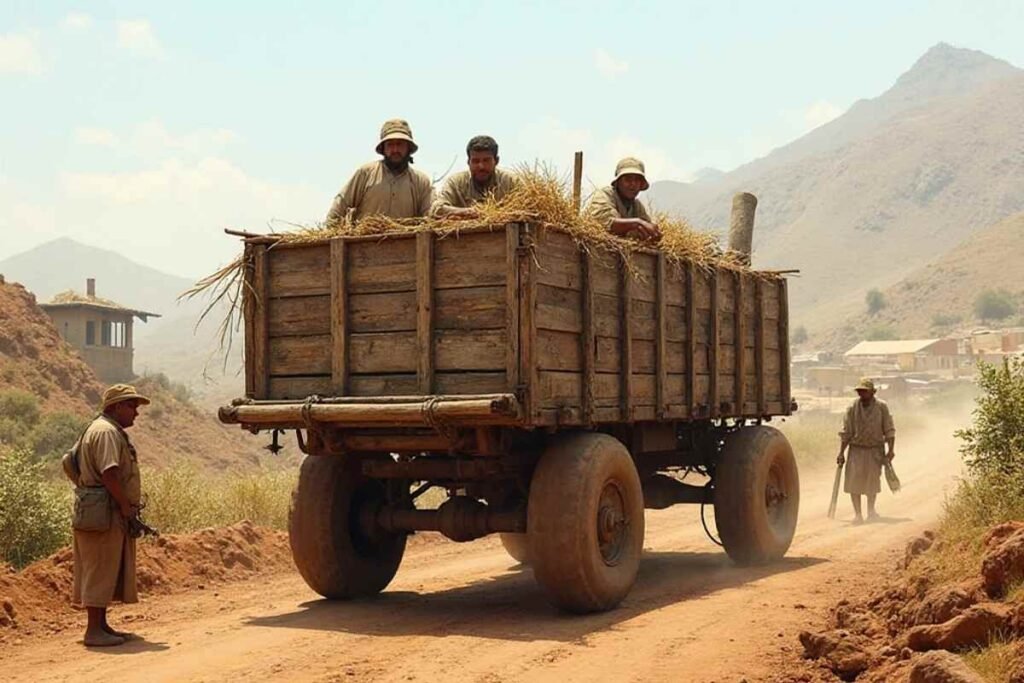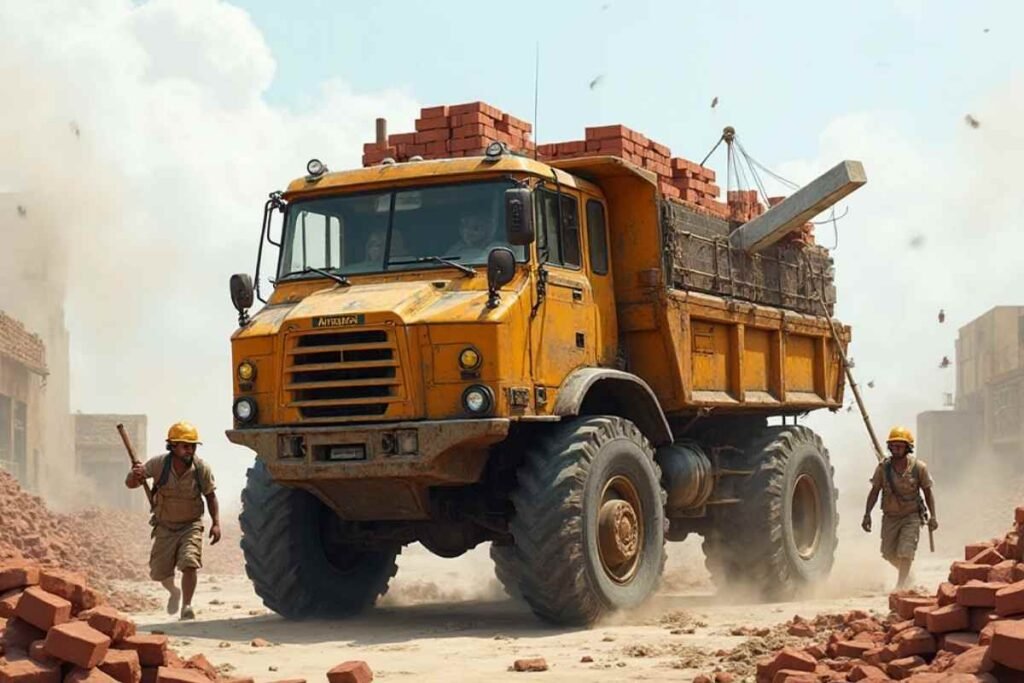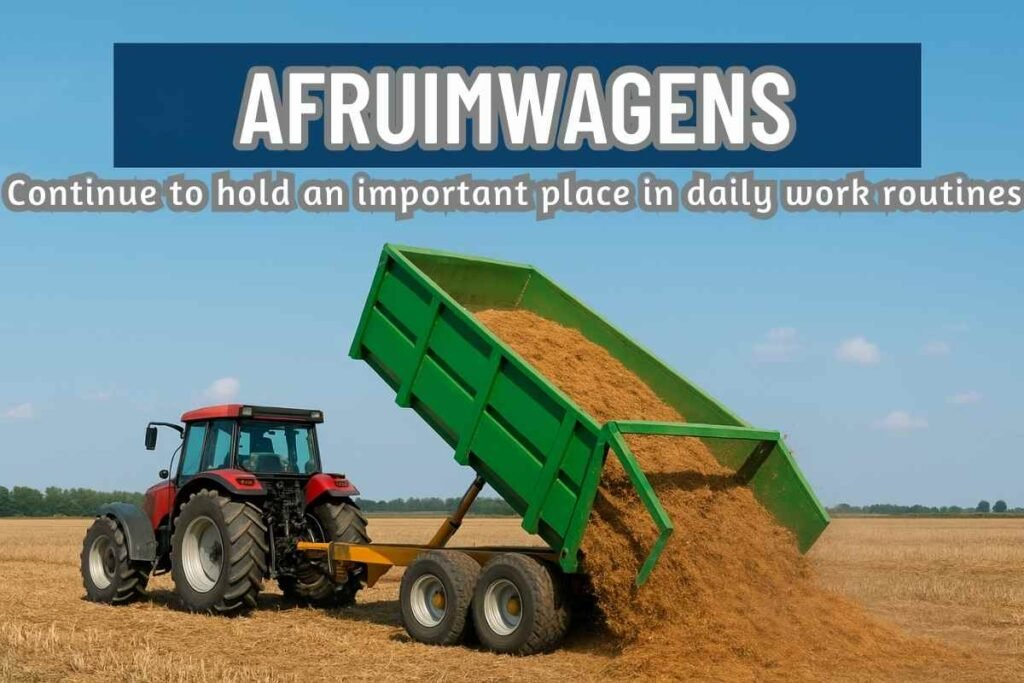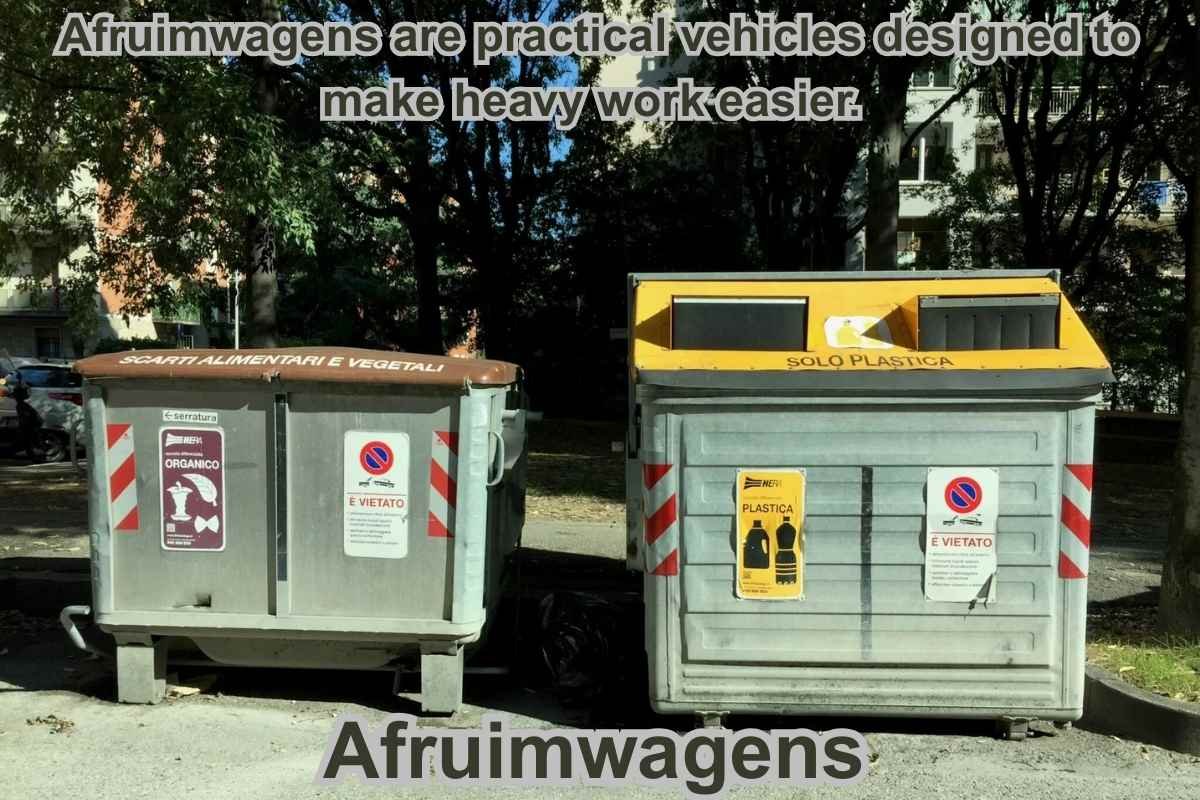They are practical vehicles designed to make heavy work easier. They are most often seen in farming construction and local transport.
For people who need to move crops tools or building supplies these machines save both time and effort. Their strong build allows them to handle rough paths and large loads without slowing down.
Farmers rely on them during harvest while builders use them to carry materials safely. They continue to stand out as trusted helpers in work that demands strength and reliability.
Want to dive deeper into their impact? Explore more on Allthefallen where we bring you clear reliable insights on everyday tools like Afruimwagens.
What is an Afruimwagens?

An Afruimwagens is a sturdy vehicle designed to move heavy goods with ease. It is most often used in farming construction and local transport.
Farmers trust it to carry crops tools and supplies during harvest seasons. Builders depend on it for moving bricks cement and steel across work sites.
Its strong frame and wide flatbed make it reliable even on rough paths. In short an Afruimwagen is a practical helper that saves time energy and effort every day.
Why Are Afruimwagens Important Today?
It matters because they solve daily challenges in tough work settings. In farming they move crops quickly from fields to markets.
In construction they reduce physical strain by carrying heavy materials safely. Local transport systems also depend on them to deliver goods and manage waste.
Their durability means fewer breakdowns saving both time and money. By combining strength with versatility they continue to support communities in practical and reliable ways.
| Use Case | How They Help Communities |
| Farming | Carry crops tools and animal feed across rough fields |
| Construction | Move bricks cement and steel safely on work sites |
| Local Transport | Deliver goods support markets and handle waste |
| Sustainability | Electric models cut fuel use and reduce emissions |
Historical Roots and Development!
The story of Afruimwagens begins in rural communities where reliable tools were vital. Early versions were built from wood and simple frames often pulled by animals.
They allowed people to transport crops and goods to markets far from home. Over time stronger materials such as iron and steel were added to make them last longer.
This progress made farming more efficient and connected villages more closely. Their evolution shows how local needs shaped designs that balanced durability and function.
Traditional Uses in Rural Life!
For generations Afruimwagens served as lifelines for farmers and workers. During harvest they carried grain and vegetables from fields to storage areas.
Villages also used them to transport goods for trade linking markets across long distances. Their sturdy frames meant even rocky ground could be crossed without trouble.
In some communities they were part of cultural events carrying supplies during festivals or gatherings. This everyday presence made them more than just tools but they became symbols of shared effort.
Modern Roles in Agriculture!
Today they remain central to farming practices both large and small. They help farmers move crops quickly during busy seasons cutting down the need for extra labor.
The wide flatbeds allow space for equipment fertilizers or animal feed. Because they handle uneven land they save time when fields are spread out.
Their dependable structure means less risk of damage to produce during transport. By making daily work smoother they help farmers increase productivity while reducing strain.
Use in Construction Projects!

Construction sites also benefit greatly from Afruimwagens. Their ability to carry heavy loads makes them perfect for moving bricks cement and steel.
Builders trust them to handle uneven terrain where other vehicles may struggle. With their strong tires and reinforced frames they reduce the need for multiple trips across a site.
This saves energy and keeps work moving at a steady pace. Workers also face fewer risks of injury as the vehicles reduce the burden of lifting heavy items.
Role in Local Transport and Logistics!
Beyond farming and building Afruimwagens are part of everyday logistics. In towns and villages they carry supplies to shops and help move waste safely.
Their flexible use makes them ideal for short distance transport where roads are rough or narrow. In markets they simplify the transfer of goods from sellers to buyers.
Businesses that rely on steady delivery find them reliable for saving both cost and time. Their role in logistics shows how simple machines can meet complex community needs.
Technology and Design Improvements!
Modern Afruimwagens include features that make them safer and easier to use. Hydraulic systems allow for quicker lifting and smoother handling of loads.
Some designs include ergonomic seating that reduces strain during long hours of work. Stronger materials like reinforced steel help them withstand heavy use over time.
Added safety elements such as better brakes improve control on steep paths. GPS systems are also included in some models to guide movement across large farms. These updates ensure durability while keeping tasks simple.
Environmental and Economic Benefits!
They also bring positive impact to both nature and budgets. Electric powered versions lower carbon emissions supporting eco friendly farming.
Farmers save on fuel costs while still getting the same level of performance. Their ability to carry larger loads reduces repeated trips cutting down overall energy use.
For businesses fewer labor hours mean savings that increase profits. The combination of sustainability and efficiency makes them smart choices for communities. By blending strength with responsibility they serve both people and the planet.
Safety Practices for Operators!
Safe use of Afruimwagens is essential for protecting workers. Operators should inspect tires brakes and lights before each use to avoid risks.
Wearing protective gear like helmets and gloves helps reduce injuries on busy sites. Driving at a steady speed prevents loss of control especially on rough terrain.
Workers nearby should always keep a safe distance while the vehicle is in motion. Clear training on how to load and unload prevents accidents. Safety steps like these ensure reliable use without harm.
Everyday Impact on Communities!
In daily life Afruimwagens improve how people connect and share resources. Farmers use them to deliver fresh produce quickly to local markets.
Construction crews rely on them to finish projects on time without delays. Municipal teams make use of them in waste collection keeping towns clean.
Their versatility means they serve not just individuals but entire communities. By making tough jobs lighter they save both time and energy. This everyday support has made them valuable assets across many regions.
Lasting Value of Afruimwagens!

They continue to hold an important place in daily work routines. Their ability to handle farming construction and transport tasks makes them indispensable.
Communities depend on them to save time and reduce strain in heavy labor. Their sturdy design ensures they remain reliable tools across different settings.
By combining efficiency with practicality they offer consistent results year after year. This lasting value shows why they remain trusted helpers for people everywhere.
Conclusion
They remain trusted tools that bridge work between farm construction and local transport. Their strength versatility and efficiency make them essential across industries.
Farmers gain more time during harvest builders complete tasks safely and towns manage resources better. With updated designs they continue to meet practical needs while also supporting sustainable choices.
Their role goes beyond single tasks strengthening the way communities work together. Reliable durable and helpful Afruimwagens prove their lasting value every day.
FAQs
What is an Afruimwagen?
It is a sturdy vehicle designed to carry heavy goods in farming, construction, and local transport.
Why are they important in farming?
They help farmers move crops equipment and supplies efficiently across fields.
Are they eco friendly?
Yes modern electric versions lower fuel use and reduce harmful emissions.
Can it be used in cities?
Yes many communities use them for waste collection and local deliveries.
How do operators stay safe?
By inspecting equipment wearing protective gear and following careful driving practices.
How long do they usually last?
With proper care and maintenance they can serve reliably for many years even under heavy use.




